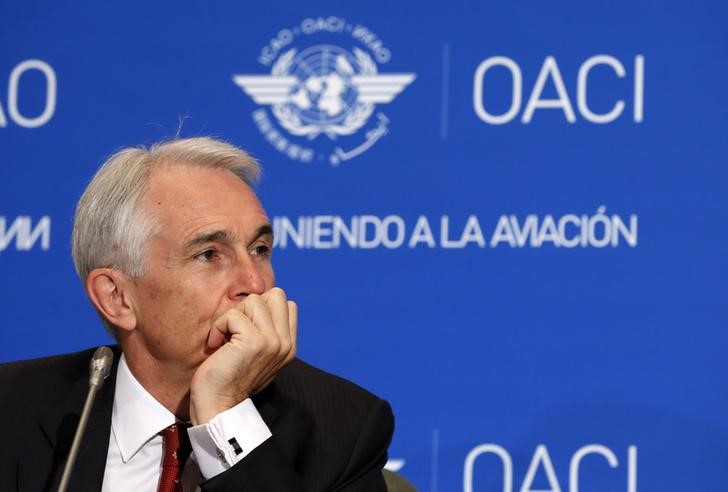By Tim Hepher
GENEVA (Reuters) - An aviation industry task force has recommended that airlines should install available flight-tracking systems within 12 months following the disappearance of a Malaysian jetliner with 239 people on board.
But in a sign of the difficulties of agreeing a prompt response to the disappearance of Flight 370, the group representing global airlines, which chairs the industry task force, said it did not believe the deadline was practical.
"Airlines are taking the tracking issue very seriously," IATA Director General Tony Tyler told journalists.
"Some already exceed the report's suggested performance criteria. For others, closing the gap may take more than a 12-month timeline for every aircraft," he added.
IATA said the working group -- comprising representatives of airlines, pilots, air traffic control and airplane manufacturers -- had agreed that it should be possible to track each aircraft to the nearest nautical mile throughout any potential journey.
As a first step, airlines, air traffic control authorities and telecommunications companies are being urged to check what they have and upgrade their equipment if needed within a year.
IATA said it had not been able to establish how many of its 250 airline members already met the recommendations, because not all of them had shared the information.
Its top safety official stressed however that all its airlines, which have to pass a safety audit to be part of the Geneva-based organisation, complied with tough regulations.
Many airlines subscribe to ancillary services that provide automated maintenance updates during long flights, but these are not compulsory. Malaysian Airlines had not subscribed to the service for the jet that went missing nine months ago on a flight from Kuala Lumpur to Beijing.
IATA said the industry would monitor new satellite-based systems likely to become available over the next few years.
It is also exploring with manufacturers whether to make tracking and other systems tamper-proof but said this could not be achieved any time soon, because of the complexity of adopting and certifying changes to any aircraft system.
Some airlines already track aircraft but procedures vary widely. Airline industry leaders have said keeping track of aircraft in real time by adding new systems could push up ticket prices. Some say governments should pay part of the cost.

Some regulators say better tracking would help rescuers reach crash sites more quickly and allow investigators to recover black boxes, which would help prevent future accidents.
(Editing by Keith Weir)